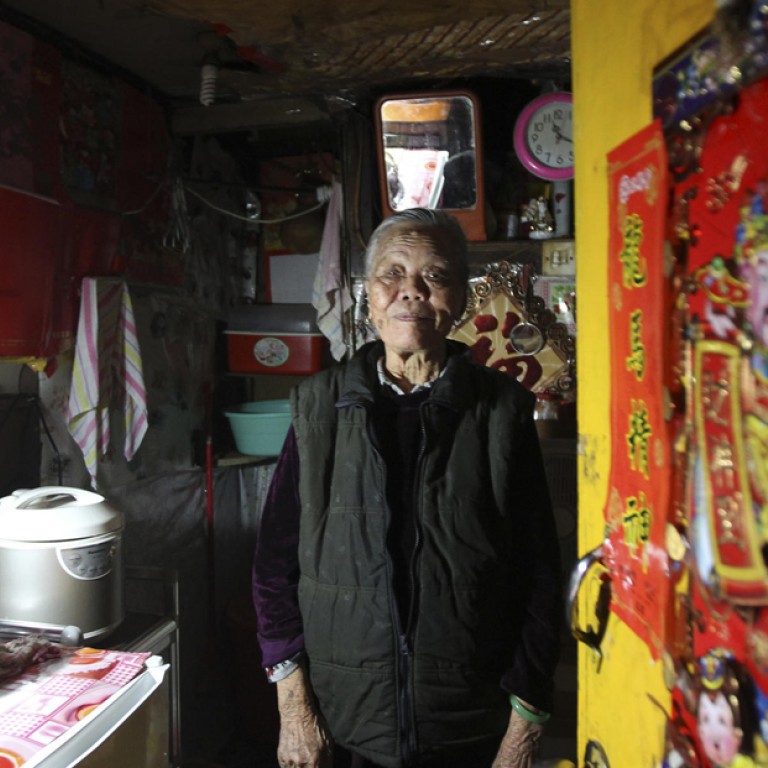
Hundreds of poor Hongkongers to lose homes in Sham Shui Po redevelopment
Urban Renewal Authority wants to redevelop warren of subdivided flats and illegal structures
Hundreds of residents, many crammed into subdivided flats and illegal structures, will have to move out if the Urban Renewal Authority goes ahead with plans to redevelop a group of Sham Shui Po tenements built nearly 60 years ago.
Many flats in the buildings, huddled cheek by jowl between Castle Peak Road and Un Chau Street, are subdivided into cubicles, and rooftop structures are common. In one, 15 people are crammed into a two-storey structure made of wood.
Announcing the HK$1.8 billion project yesterday, the authority said it hoped to improve the run-down district's living conditions through this and other projects.
"The buildings are generally in poor condition, with unauthorised building works, subdivided units and cubicle apartments," said the authority's acquisition and clearance director, Ian Wong Wai-kuen.
One owner said he was hoping for more than HK$10,000 a square foot in compensation.
The six-storey blocks, occupying 1,900 square metres, were built between 1955 and 1956. A two-month consultation period began yesterday, with the project subject to the government's final approval.
About 230 flats will be built, providing 12,000 square metres of residential floor area, plus some 2,400 square metres of commercial space if the project - expected to be completed by 2022 - goes ahead.
Wong said a survey showed the buildings were generally dilapidated. Owners had received maintenance orders from the Buildings Department, and some parts had been renovated.
On the rooftops, dark, narrow alleys link 20 structures - three of them two storeys high. Some households share a common toilet and kitchens in the alleys.
A woman giving her name only as Fu, who lives in a two-storey structure with 14 other family members, said she hoped to get a public flat even though she arrived in the city only five years ago. "It's only fair for the government to arrange a public rental flat for us when it's demolished," she said.
Although she does not yet qualify for permanent residence, she hopes her baby granddaughters, born in Hong Kong, will be able to register for a public flat.
Fu, in her 40s, has three bunk beds, a bathroom and a kitchen in the 300 sq ft structure, housing herself and her husband, their two sons and two daughters-in-law, two granddaughters and a few elderly relatives.
The couple bought the structure from a former owner. Fu said they often saw rats, and the summer and winter weather made conditions even worse.
"It's not our choice to live here," she said. "We couldn't afford anything better."
Leung Yau-pui, who owns a 1,000 sq ft flat, said acquisition company Richfield had approached him earlier offering HK$5,000 a square foot, but he hoped the government would offer more than HK$10,000.
